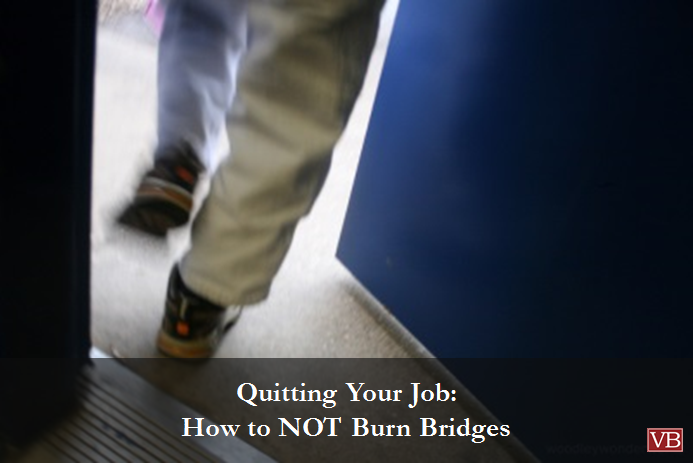
Not every reason for leaving a job is negative. You may have an opportunity to move to a new city or you stumble upon an opportunity that you can’t pass up. However, there are also plenty of reasons for leaving a job that are negative. You may be dissatisfied with your current company or you don’t feel challenged in your role. In either case it is extremely important to understand that the way you resign will impact your career moving forward. Here are some resignation tips that you need to know about quitting a job without burning bridges.
- Know your rights, and your employer’s rights. Do you remember all of the paperwork you signed when you were originally hired? You may have a non-compete agreement with your company. Some states are “at will” states where either employers or employees can terminate the job at any time, but some aren’t. Before you make any important decisions check you’re your state employment laws and review your original package with the company.
- Don’t search while on the job. Probably the number one mistake job seekers make when searching for a new job is to do it at the office. Companies do have the right to track your use of their technology. If they see you accessing inappropriate sites or spending more time searching for a new job rather than paying attention to your current one they can take action against you. Instead, you can take advantage of mobile technology and use job search apps after hours. Here are some of the best apps for your job search:
o Apploi
- Don’t tell anyone in the office. The rumor mill is not your friend when you’re trying to look for a job before you’re ready to quit. Even your closest confident in the office may not be able to keep your secret so keep it under wraps until you’ve formally resigned to your manager.
- Provide the proper notice. In most places you are not obligated in any way to provide notice to your employer, but it is considered a professional courtesy. At least two weeks will allow your employer to find and hire a replacement. It will also give you a chance to share any of your best practices with your team or your replacement. If it is possible, try to provide more than two weeks. Your new employer will also appreciate that you want to provide a notice to your current job.
- Provide a written notice. Along with your two week notice it is good form to provide a formal letter or resignation to your direct supervisor in person. You can craft your message in advance and be sure to include positive thoughts about your employment with the company. It also forces you to face your decision head on in the most professional way possible. Walking off the job or leaving a letter of resignation on your desk along with your key can seem like a good idea when you’re feeling emotional, but nothing burns a bridge faster.
Leaving a job will be emotional whether you’re dissatisfied or not. You want to make sure that everyone in the office knows that you are leaving the company but not setting aside the relationships that you have built.
Are you looking for a new opportunity? VincentBenjamin provides contingency search and contract placement services for employers while assisting candidates in the Accounting & Finance and Information Technology fields.
